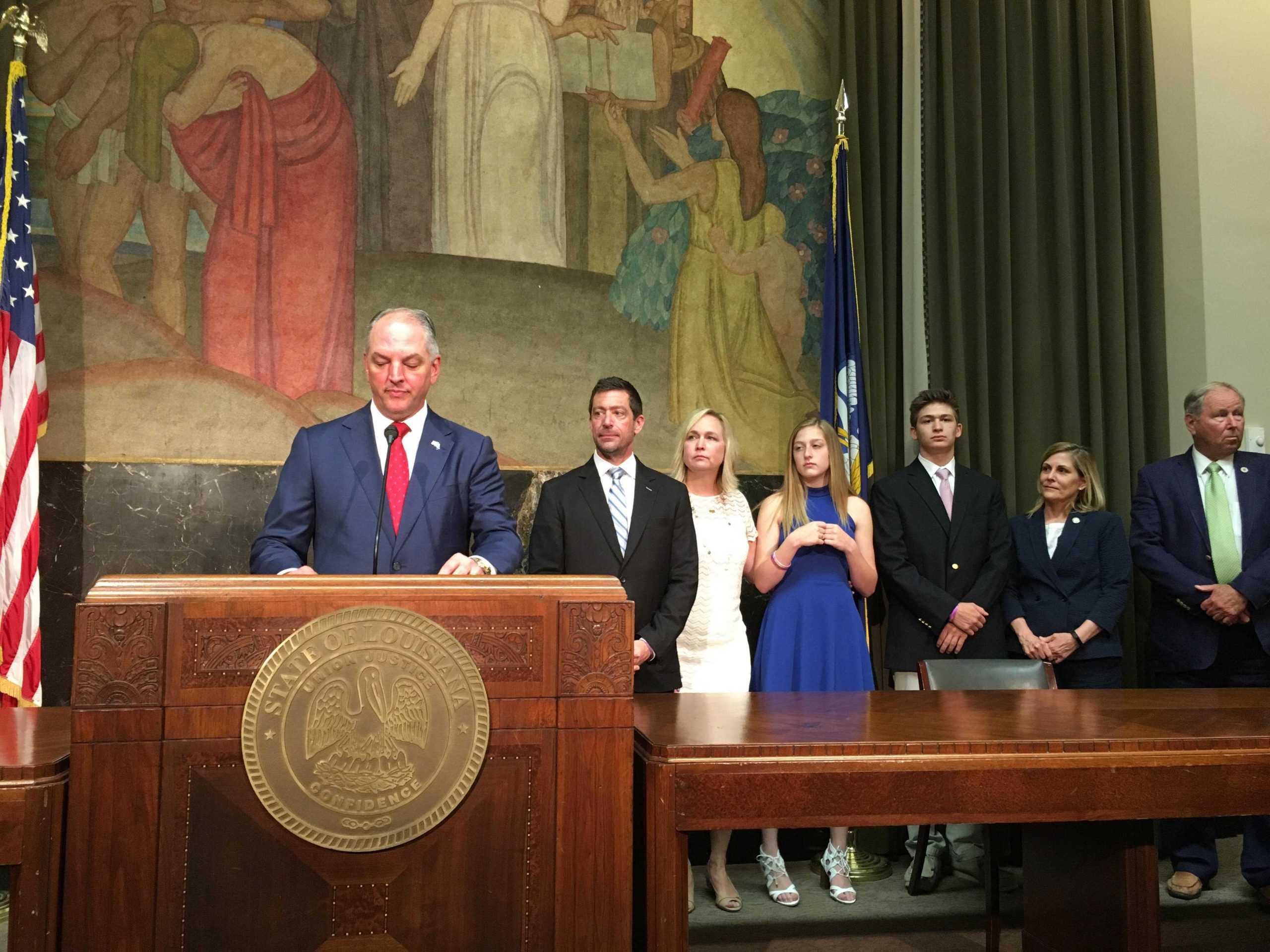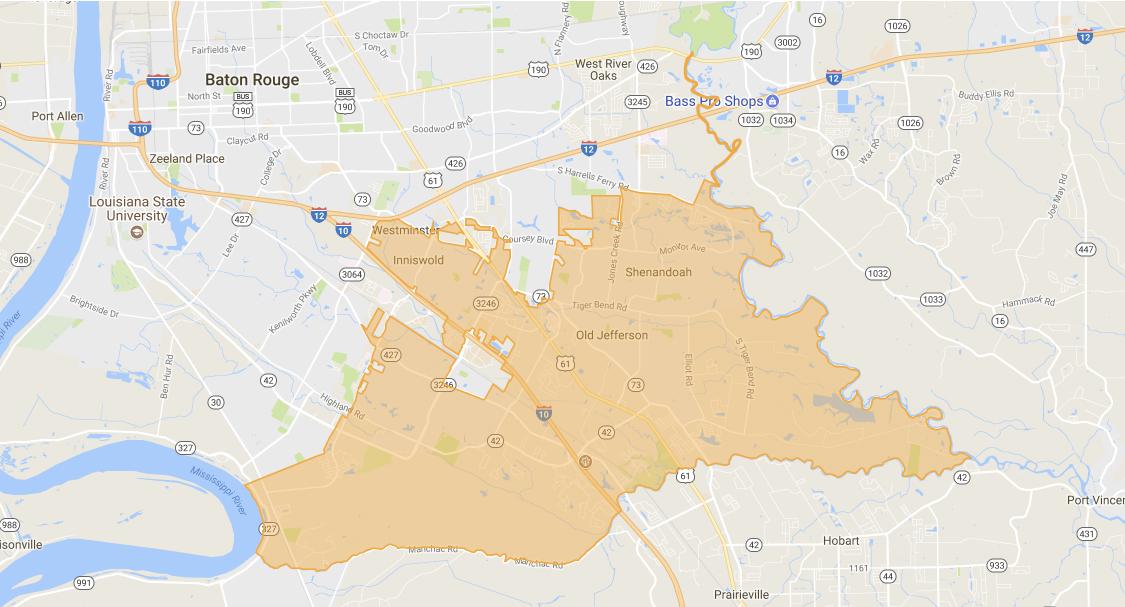In May, Gov. John Bel Edwards stood alongside the family of Max Gruver as he signed the “Max Gruver Act” and other anti-hazing legislation into law at the Louisiana State Capitol, using four pens to represent each member of the family there on Max’s behalf.
Travelling from their home in Roswell, Georgia, Max’s mother Rae Ann, his father Stephen, and his younger siblings Alex and Lily Kate witnessed the set of four anti-hazing bills becoming law, inspired by their own tragedy.
“We believe it’s groundbreaking and precedent-setting for the rest of the country,” Stephen Gruver said in an interview after the bills were signed. “These laws have components to them that just don’t exist anywhere else.”
Hazing that results in death is now considered a felony in Louisiana. Individuals who take part in hazing activities that result in death when the victim’s blood alcohol level is at least .30 would face up to five years in prison and fines of up to $10,000. Max’s blood alcohol level was .495 at his time of death in September 2017, which is six times the legal limit to drive.
The act also strengthens penalties for misdemeanor hazing charges. Hazing events that do not lead to death are subject to fines of up to $1,000 and six months in prison. Before this law, hazing called for a maximum fine of $100 and up to 30 days behind bars.
The act expanded the list of educational groups subjected to anti-hazing laws to include fraternities, sororities, associations, clubs, service groups, spirit groups and other groups that have members who are college students. Those groups that knowingly allow hazing could face fines of up to $10,000.
Edwards anticipates that Louisiana will be a model state for others across the country who are also determining ways to combat hazing on college campuses.
“We have to acknowledge that this issue does not just affect us because of Greek Life on campus,” Edwards said during the signing. “Certainly, [May 31] does not mark the finish line. This is not ‘mission accomplished.’ This is a good start to what is going to be an ongoing process.”
After Max’s death, Stephen and Rae Ann Gruver established a nonprofit organization called the Max Gruver Foundation to work to help other states establish anti-hazing laws and provide awareness, including their home state of Georgia. They also have a Facebook page titled “Fly High Max.”
All but six states in the nation have hazing laws, and at least 11 other states have made hazing a felony when it results in death or serious injury.
The Gruvers said they are working with Republican Sen. John Albers in their home state of Georgia to establish similar anti-hazing laws, as well.
“We’ll go state-by-state if we have to,” Rae Ann said in an interview with The Daily Reveille.
One of the bills that was signed requires universities and colleges to expel or suspend students who haze others. Educational groups on campuses are required to report suspected hazing and make anti-hazing education mandatory for members.
The Louisiana Board of Regents has since developed a uniform policy on hazing
prevention for all colleges and universities in the state. Hazing education in new student orientations must be included. At least an hour of hazing prevention education for all members and prospective members will be required of Greek organizations and other student life groups.
Another law grants amnesty for those exposed to the scene of an emergency. Those who are present when another person suffers serious bodily harm are required to provide reasonable assistance to the injured person including seeking help or reporting the need for help to an appropriate authority.
If individuals fail to report, they can be criminally charged with a fine up to $1,000, a year behind bars or both. If the injury results in death, the individuals could face a $2,500 fine, five years behind bars or both.
With an additional law signed by Edwards, the identifying information of the students who report violations of the student code of conduct are protected.
The Gruvers said the day the legislation passed was “bittersweet” and only a “piece of the puzzle.” They emphasized the importance of educating others, including high school students.










